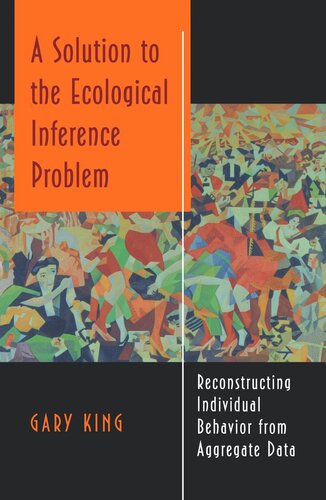

Most ebook files are in PDF format, so you can easily read them using various software such as Foxit Reader or directly on the Google Chrome browser.
Some ebook files are released by publishers in other formats such as .awz, .mobi, .epub, .fb2, etc. You may need to install specific software to read these formats on mobile/PC, such as Calibre.
Please read the tutorial at this link: https://ebookbell.com/faq
We offer FREE conversion to the popular formats you request; however, this may take some time. Therefore, right after payment, please email us, and we will try to provide the service as quickly as possible.
For some exceptional file formats or broken links (if any), please refrain from opening any disputes. Instead, email us first, and we will try to assist within a maximum of 6 hours.
EbookBell Team

4.1
30 reviewsThis book provides a solution to the ecological inference problem, which has plagued users of statistical methods for over seventy-five years: How can researchers reliably infer individual-level behavior from aggregate (ecological) data? In political science, this question arises when individual-level surveys are unavailable (for instance, local or comparative electoral politics), unreliable (racial politics), insufficient (political geography), or infeasible (political history). This ecological inference problem also confronts researchers in numerous areas of major significance in public policy, and other academic disciplines, ranging from epidemiology and marketing to sociology and quantitative history. Although many have attempted to make such cross-level inferences, scholars agree that all existing methods yield very inaccurate conclusions about the world. In this volume, Gary King lays out a unique--and reliable--solution to this venerable problem.
King begins with a qualitative overview, readable even by those without a statistical background. He then unifies the apparently diverse findings in the methodological literature, so that only one aggregation problem remains to be solved. He then presents his solution, as well as empirical evaluations of the solution that include over 16,000 comparisons of his estimates from real aggregate data to the known individual-level answer. The method works in practice.
King's solution to the ecological inference problem will enable empirical researchers to investigate substantive questions that have heretofore proved unanswerable, and move forward fields of inquiry in which progress has been stifled by this problem.